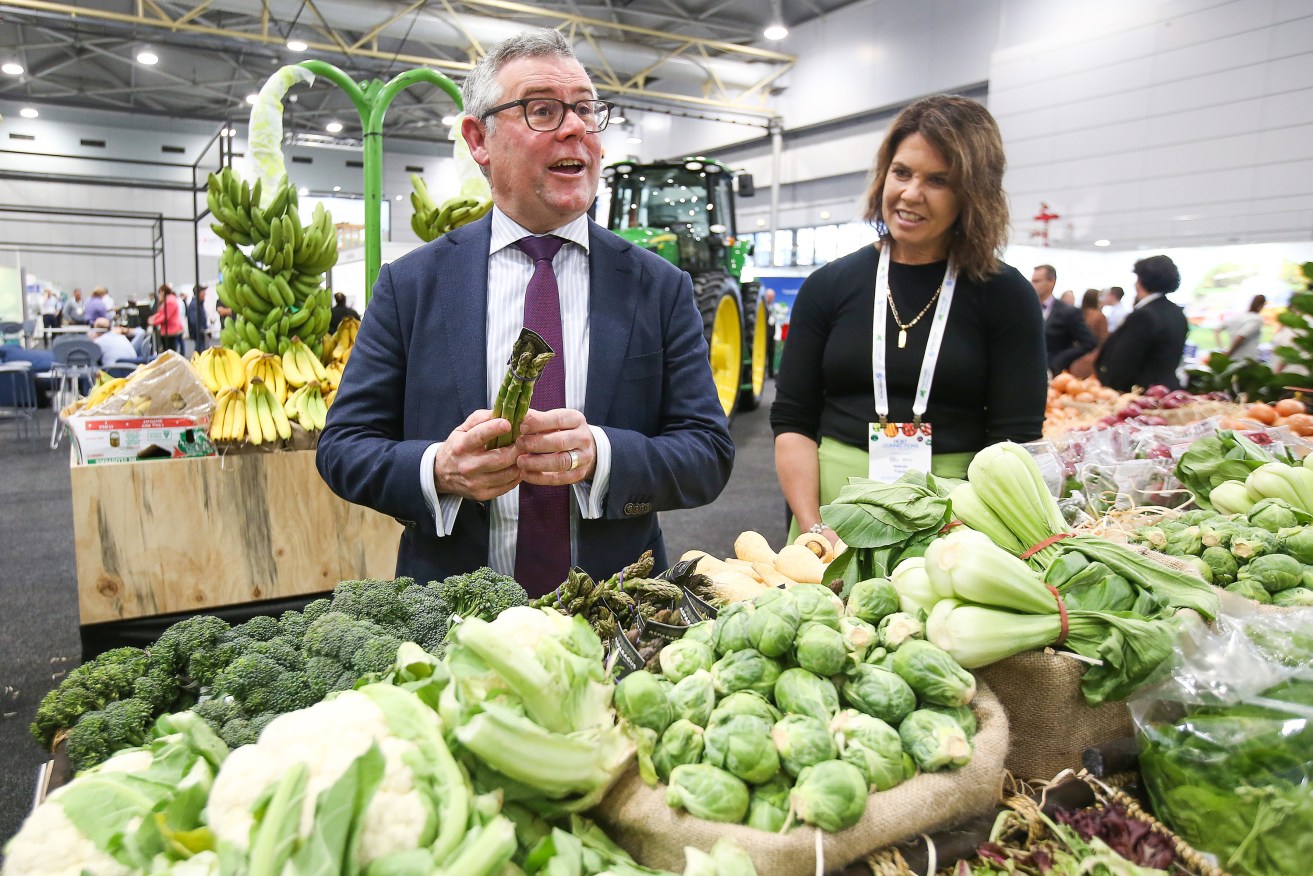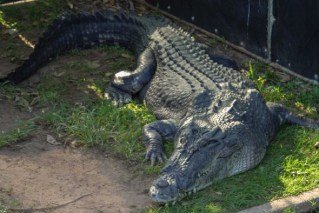Disaster on our doorstep: floods in south, viral storm to north put heat on minister
A busy federal minister dealing with the Sydney flood crisis and an allegedly weakened Queensland Department of Agriculture has questions swirling if the response to a monster biosecurity threat lurking off our shores will be up to the task.


Murray Watt, Federal Minister for Agriculture, Fisheries and Forestry, has warned supermarkets against Christmas gouging. (AAP Image/Jono Searle)
News that foot and mouth disease (FMD) is circulating in Bali has sent a “shiver up the spine” of Australian livestock producers, according to National Farmers Federation president Fiona Simson.
After weeks of rolling outbreaks among livestock across the Indonesian archipelago, the highly contagious virus destructive to cattle, pigs and sheep is set to strain already stressed biosecurity resources as thousands of Australian travellers fly in and out of the holiday hotspot during the current winter school holiday break.
Queensland Labor Senator Murray Watt, the newly minted federal Agriculture Minister who also bears responsibility for the nation’s natural disaster response, is facing heat on two fronts – the Sydney flood crisis and a viral storm that would cause billions of dollars damage to the Australian economy should FMD breach borders and worm its way onto farms.
Watt has come under sustained pressure on social media for not providing updates on the government’s FMD defence preparations.
The former agriculture minister, now Nationals Leader, David Littleproud, has weighed in, calling on Watt to “get a handle” on the threat and to activate and strictly adhere to increased biosecurity protocols.
“There should be foot dips for all travellers returning from Bali so that any trace of the disease on the bottom of shoes is stopped at the border,” he said.
“Our livestock producers need to be told explicitly that compensation is available if they spot and report any signs of the disease on our shores because if the disease comes into Australia, we will lose the genetic of our valuable livestock.”
A spokesperson from Watt’s office told InQueensland Watt was being briefed yesterday morning on the unfolding FMD spread, with chief vet Dr Mark Schipp, Australian biosecurity director Andrew Metcalfe and head of the national animal disease taskforce Dr Chris Parker involved in the high-level talks.
Queensland Agriculture Minister Mark Furner said the Queensland Government was working closely with State and Commonwealth Governments, and the industry taskforce to prevent and prepare for emergency animal disease threats, including FMD.
“Should FMD be detected in Queensland, it will be contained and eradicated according to the AUSVETPLAN FMD response strategy,” he said.
The potential disease incursion comes as Queensland Government budget papers show a fall of $6.2 million in expenditure on the Department of Agriculture and Fisheries (DAF) in the last financial year.
From the controlled income statement in the budget papers sighted by InQueensland, DAF appears to be going backwards, with lower spending and falls in revenue appropriation when adjusted for CPI.
The revelations follow a recent InQueensland report where LNP Opposition agriculture spokesman Tony Perret probed the government on a contraction of full time research and extension staff and a centralisation of services away from rural communities into Brisbane as a way to further crib costs.
Furner has rejected Perret’s claims, saying the LNP “still carries the shame of its massive cuts to Fisheries and to Biosecurity Queensland and its cut of over 600 department staff when it was in office”.
He said the DAF budget had increased 49 per cent since the Palaszczuk Government came to office, and that last financial year’s spending included “vital interventions and critical investments” to support farmers through the pandemic.
“The Palaszczuk Government has always understood that agriculture is an essential industry, and our significant investments supporting our farmers through the pandemic are clear evidence of that,” he said.
His office has also rejected Perret’s earlier claims, blaming the shadow minister’s LNP colleagues for cutting scientific staff at the Redlands research centre to three during the term of the Newman Government.
Any cuts to the agriculture budget would bite significantly in the current climate with Japanese Encephalitis in Queensland and restrictions in place to thwart the march of the recently discovered varroa mite in NSW, a pest destructive to bee hives, with ramifications for the honey industry and the pollination of key horticulture crops.
The Queensland Government has imposed a ‘Movement Control Order’ to prevent movement of potentially contaminated bees and related equipment into Queensland. Beekeepers have been advised to check their hives.
Observers who have spoken to InQueensland on background say there are worrying signs biosecurity authorities are losing the war on exotic pests.
They cite examples where the red fire ant eradication program is now referred to as a “suppression taskforce” and protocols for managing the destructive fall army worm from Central America, which entered Australia via far north Queensland in 2020, have been deferred to grain growers to manage as part of their normal crop protection controls.
“Any suggestion that the suppression taskforce is a sign of surrender against fire ants is emphatically rejected,” Furner said.
“The National Fire Ant Eradication Program is backed by all states and territories and plays a vital role in the fight against this aggressive pest, and Queensland plays a leading role in that fight.”
He said that following an investment of $3.5 million, research projects have already identified several natural biological control agents that may prove effective against fall army worm, with laboratory work and multiple field trials conducted on the commercially available virus product Fawligen.
While livestock producers wait to hear from Watt, the NFF’s Fiona Simson is urging the Australian Government to undertake rapid risk analysis of FMD to ensure “our prevention measures are equal to this new level of risk”.
“Indonesia is one of our closest partners, both diplomatically and in terms of trade,” she said.
“The government must continue to support our neighbours to bring this spread under control. This is vital to protecting our industry.”
Simson is also urging travellers to be on high alert.
The NFF is calling on all those traveling in the region to be aware of the risks, and take appropriate action to ensure they do not bring home this devastating disease,” she said.
“An incursion of FMD alone would cost Australia up to $80 billion – hurting the entire economy, not just the farm sector.
“We urge travellers to be patient and work with authorities, who we hope will be taking every step to minimise risk at our borders.”












